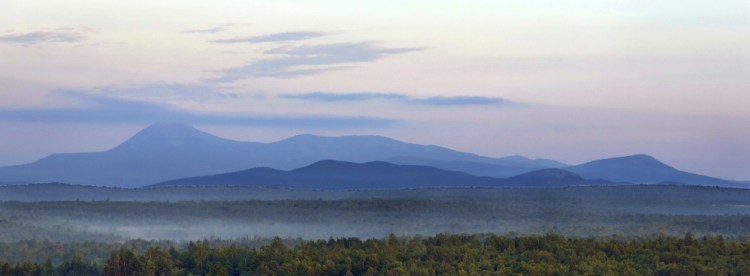When the U.S. House Natural Resources Committee meets in East Millinocket on Wednesday for a field hearing on the proposed North Woods national monument, one side will be notably absent.
Gov. LePage and the four other people scheduled to speak don’t want President Obama to designate a national monument on 87,500 acres of land east of Baxter State Park. Neither do Bruce Poliquin, the Maine congressman who asked for the meeting, or committee Chairman Rob Bishop of Utah, who’s leading it (and who wants to erode or eliminate the president’s authority to protect historic or natural areas as national monuments). Here are a few of the arguments that committee members won’t be hearing.
If the monument is created on land donated by philanthropist Roxanne Quimby, it wouldn’t change how the property is used. Under federal law, the designation would protect the land uses currently allowed by Quimby and the nonprofit foundation Elliotsville Plantation Inc. – including the 33 miles of snowmobile trails and 30,000 acres set aside for hunting on the parcel, Lucas St. Clair, Quimby’s son and Elliotsville president, recently told the Bangor Daily News. A $40 million endowment offered by Elliotsville Plantation would pay operating and management expenses.
If the monument isn’t created, the property would remain open space. Given that the foundation’s mission is conservation, there’s no chance that the land would be developed or sold for home sites.
Making the land a national monument would also create jobs, bringing much-needed diversity to the economy of Maine’s Katahdin region. For generations, the prosperity of the area has been linked to the prosperity of the forest products industry – which is good news only when the industry is thriving.
“Once we had businesses that catered to working folks with good incomes; now we have emergency food pantries and thrift stores,” third-generation Millinocket native Gail Fanjoy, head of the Katahdin Area Chamber of Commerce, wrote in a recent Press Herald op-ed. Communities where mills have closed are struggling to pay for basic services and cutting back municipal and school offerings, and property taxes are soaring.
The national monument proposal raises valid issues, and the public deserves a chance to offer their input. That’s why over 1,000 Maine residents and local officials presented their views May 16 at U.S. Sen. Angus King’s meetings in Orono and East Millinocket with National Park Service Director Jonathan Jarvis.
Wednesday’s field hearing has been touted as an opportunity for those in the area to voice their concerns. But it seems to us that if the House Natural Resources Committee were really interested in hearing from the public, they’d be willing to listen to people other than the monument’s opponents.
Send questions/comments to the editors.


